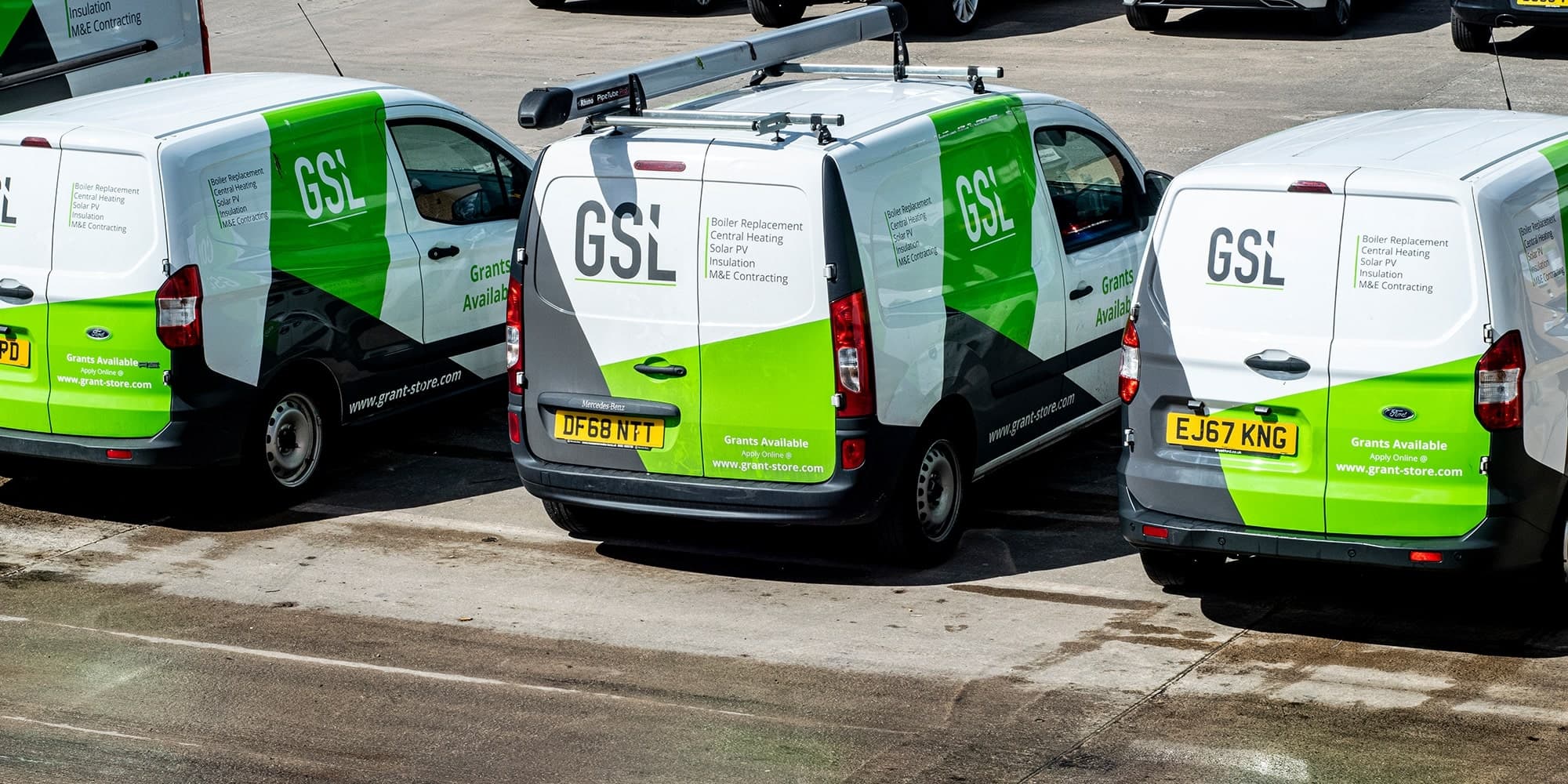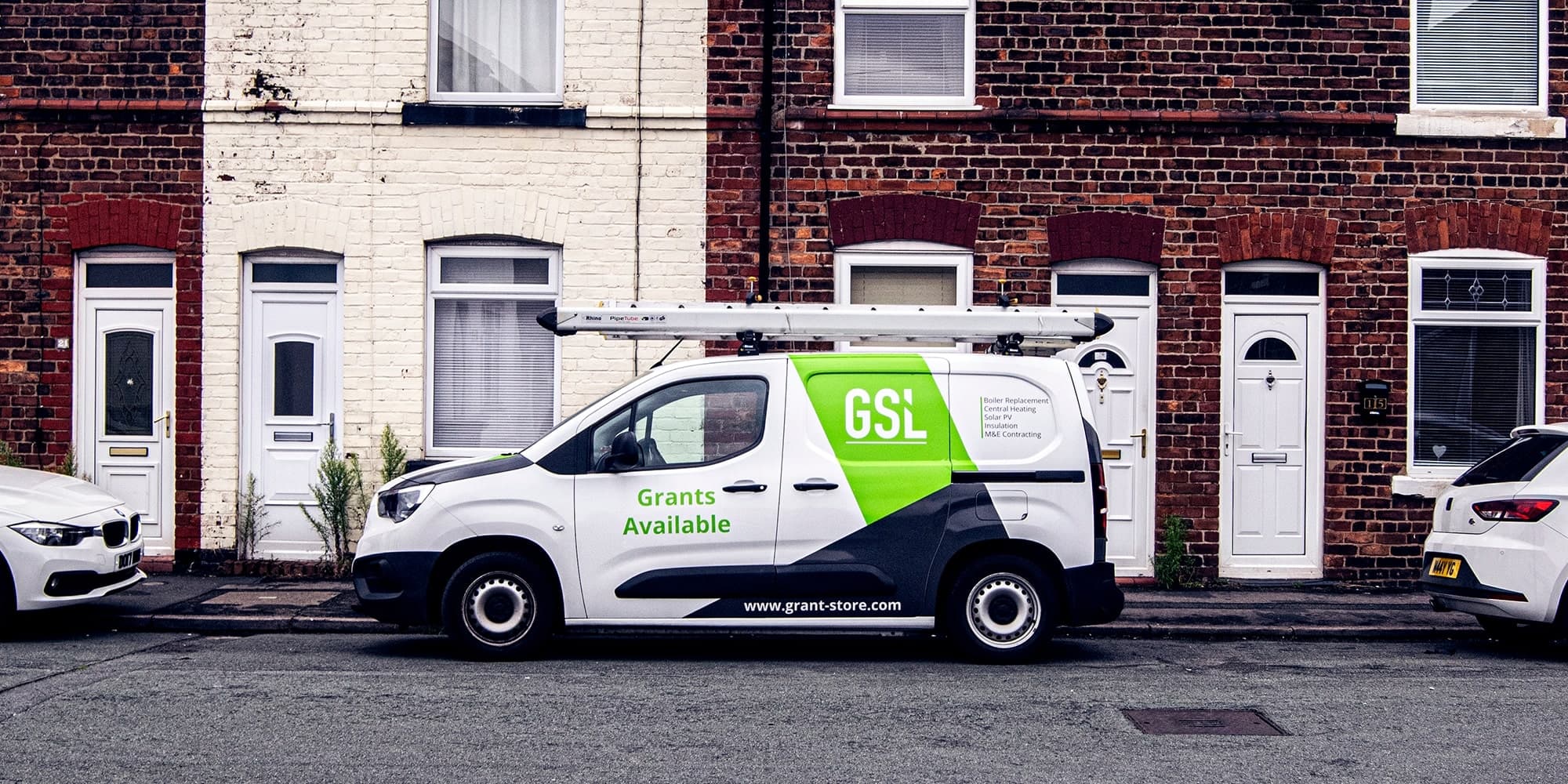August 6th, 2025
How 900m2 of solar panels are helping this NHS hospital go carbon neutral
Written by: Puneet Verma
News
Are you struggling to sell or rent your home due to its low EPC (Energy Performance Certificate) rating? Energy efficiency is a major factor for many, so you might be struggling for a while if you don’t look into how you can improve your home’s EPC rating.
Luckily, we’ve got all the information you need to make the biggest improvements to your home’s energy efficiency, including the renewable energy options you have at your disposal.
There are seven ways you can improve your property’s EPC rating, which we’ll get into in more detail further down in this blog post:
Key Takeaways
Let’s take a closer look at all of these factors that affect your EPC rating, starting with insulation.
Since heat rises, uninsulated homes can lose 25% of their heat through the roof. Loft and roof insulation is a highly effective improvement you can make to your home’s energy efficiency, especially if your current insulation isn’t doing a great job at keeping the heat in.
Loft insulation at about 270mm thickness will create a barrier that traps more heat inside, improving your EPC rating and helping you save money on those bills.
Many homes, especially older homes built in the early 20th century, lose heat through the walls — sometimes as much as 35%! Installing cavity wall insulation is a straightforward energy efficiency measure that can save on heating costs.
Solid wall insulation tackles the heat loss of older homes built with solid brick or stone walls. It involves adding rigid insulation boards, insulation-filled frames, and thermal lining directly to the inside of the walls.
This is generally cheaper and easier to install than external insulation but can sometimes be inconvenient as you need to remove and refit skirting boards, door frames, and other fittings. It also slightly reduces room size by around 100mm (the thickness of the board).
Just like heat rises, it also escapes your home downwards through uninsulated floors – around 10% of home heat, in fact. The type of insulation you use depends on your floor.
For example, suspended timber floorboards tend to have a gap between them and the ground. You can insulate this gap with spray foam, rigid boards, or mineral wool batts.
For solid concrete floors, the insulation (usually a rigid insulation board) is laid directly on the existing floor before installing the new covering (e.g. tiles, laminate, wood, etc.)
Get a housing insulation quoteTraditional single-pane windows are notorious for letting heat escape and can be a major cause for a lower EPC rating. Upgrading single-pane windows to double or triple-glazing can go a long way to improving this.
Double glazing is simply two panes of glass separated by a sealed gap of air. This gap acts as the insulator, reducing heat transfer compared to a single pane of glass.
Triple glazing simply adds another pane of glass and an air gap to improve this insulation even more. With three air gaps, your home retains heat better and has other conveniences, like additional soundproofing.
However, keep in mind that triple glazing is often a costly expense, so double glazing adds a good balance of cost and energy efficiency.
Modern central heating systems are a great way to heat your home efficiently. Not only can they improve your EPC rating, but they’ll also use less energy, helping you save money and live more sustainably.
The efficiency of your boiler plays a big role in controlling your heating costs and EPC rating. Older models are less efficient, sometimes converting only a fraction of the energy they consume into usable heat.
Installing a modern, energy-efficient boiler, such as a gas combi boiler, can have a great impact on your EPC rating while also helping you save on your heating bills.
Renewable energy heating systems such as ground- and air-source heat pumps are also an option. These systems transfer heat from the ground or air, even when the weather’s cold, to heat your home.
Plus, since they offer long-term savings and are cheaper to run, they are a popular option if you’re looking to improve your home’s EPC rating.
Yes! Funding is available for energy-efficient home upgrades. If you’re eligible, you could receive a grant that covers up to 100% of the cost of your home heating through initiatives like the ECO4 grant scheme, Boiler Upgrade Scheme and Great British Insulation Scheme.
Eligibility differs for each home insulation grant, but they often look at things like your income and benefit status. Not sure if you qualify? Give us a call today, and we will help you figure it out!
Do you need to upgrade your property’s EPC rating but don’t know where to start? We have fifty years of experience keeping Britain’s homes warm, and many more happy customers.
Whether you need help applying for a potential home heating grant or need a reliable and professional team to install your home’s new insulation, Grant Store can help.
Let’s get your home sold or rented once and for all with a better EPC rating today. Just give us a call to get started with a free, no-obligation quote.
Get started
August 6th, 2025
How 900m2 of solar panels are helping this NHS hospital go carbon neutral
Written by: Puneet Verma
News
August 6th, 2025
What is a solar panel inverter?
Written by: Puneet Verma
News
June 9th, 2025
Solar water heating vs solar PV: What’s right for you?
Written by: Gareth Whitehill
News
May 9th, 2025
Solar panel installation: Step-by-step guide for UK homes & businesses
Written by: Gareth Whitehill
News
April 9th, 2025
Are solar batteries worth it in the UK?
Written by: Gareth Whitehill
News
April 9th, 2025
What size solar battery do I need?
Written by: Gareth Whitehill
News
January 20th, 2025
Heat pumps vs. traditional heating: Which is right for your home?
Written by: Gareth Whitehill
Heat Pumps
January 13th, 2025
Do heat pumps work well in older homes?
Written by: Gareth Whitehill
Heat Pumps
January 6th, 2025
How do air source heat pumps work?
Written by: Gareth Whitehill
Heat Pumps
December 30th, 2024
Are air source heat pumps worth it in the UK climate?
Written by: Gareth Whitehill
News
December 23rd, 2024
Why are heat pumps taking over UK homes?
Written by: Gareth Whitehill
Heat Pumps
December 16th, 2024
Are heat pumps suitable for smaller homes?
Written by: Gareth Whitehill
Heat Pumps
September 25th, 2024
Grant Store are official sponsors of Chorley FC!
Written by: Gareth Whitehill
News
August 30th, 2024
Grant Store is an official Octopus Trusted Partner!
Written by: Gareth Whitehill
News
August 1st, 2024
How green is solar energy?
Written by: Gareth Whitehill
Solar
July 30th, 2024
How to insulate an old house
Written by: Gareth Whitehill
News
July 29th, 2024
What’s Involved in an Air Source Heat Pump Installation?
Written by: Gareth Whitehill
Heat Pumps
July 28th, 2024
A complete guide to heating water with solar power
Written by: Gareth Whitehill
Solar
July 25th, 2024
How To Make the Most Out of ECO4 Funding
Written by: Gareth Whitehill
News
July 23rd, 2024
Are UK homes getting any greener?
Written by: Gareth Whitehill
News
June 27th, 2024
Why should you choose an MCS installer for your heat pump project?
Written by: Gareth Whitehill
Heat Pumps
June 27th, 2024
When does ECO4 end, and what happens next?
Written by: Gareth Whitehill
News
June 11th, 2024
Exploring Energy Grants for Pensioners: A Guide to Lowering Your Energy Costs
Written by: Gareth Whitehill
News
June 11th, 2024
Do air source heat pumps work well with solar panels?
Written by: Gareth Whitehill
Heat Pumps
June 11th, 2024
Your Guide to Understanding Energy Performance Certificates (EPCs)
Written by: Gareth Whitehill
News
June 11th, 2024
What energy grants can I get on Universal Credit?
Written by: Gareth Whitehill
News
June 1st, 2024
Who qualifies for a boiler grant in the UK?
Written by: Gareth Whitehill
News
May 22nd, 2024
Is the UK Government Planning to Ban Gas Energy?
Written by: Gareth Whitehill
News
April 25th, 2024
Your Complete Guide To Off-Gas Property Grants in the UK
Written by: Gareth Whitehill
News
April 24th, 2024
What are electric storage heaters?
Written by: Gareth Whitehill
News
April 23rd, 2024
How To Improve Your Home’s EPC Rating: A Guide to Boosting Efficiency and Reducing Costs
Written by: Gareth Whitehill
News
April 23rd, 2024
What is the ECO Scheme, and how can it help me?
Written by: Gareth Whitehill
News
April 23rd, 2024
How to apply for the ECO4 Grant: Everything you need to know
Written by: Gareth Whitehill
News
April 18th, 2024
The Complete Guide to Heat Pumps: Benefits, Costs, Savings, and Efficiency
Written by: Gareth Whitehill
Heat Pumps
March 13th, 2024
What size solar PV system do I need?
Written by: Gareth Whitehill
Solar
February 27th, 2024
What grants are available for energy-saving?
Written by: Gareth Whitehill
News
November 24th, 2023
How Many Solar Panels Do I Need?
Written by: Gareth Whitehill
Solar
November 23rd, 2023
How Much Money Do Solar Panels Save?
Written by: Gareth Whitehill
Solar
November 22nd, 2023
How Are Solar Panels Made?
Written by: Gareth Whitehill
News
November 22nd, 2023
Do you need planning permission for solar panels?
Written by: Gareth Whitehill
News
November 22nd, 2023
How Much Do Solar Panels Cost?
Written by: Gareth Whitehill
News
November 22nd, 2023
How Do Solar Panels Work?
Written by: Gareth Whitehill
News
November 20th, 2023
Smart Export Guarantee Rates 2024
Written by: Gareth Whitehill
News
November 20th, 2023
Can I Add a Battery to my Solar System?
Written by: Gareth Whitehill
News
November 20th, 2023
How Do You Store Solar Energy?
Written by: Gareth Whitehill
News
October 3rd, 2023
Solar panels: are they worth the cost?
Written by: Gareth Whitehill
News
September 19th, 2023
How efficient are solar panels?
Written by: Gareth Whitehill
News
September 19th, 2023
Do solar panels boost home value?
Written by: Gareth Whitehill
News
September 19th, 2023
What are the pros and cons of solar panels?
Written by: Gareth Whitehill
News
Not sure which energy-saving solution is right for your home? Or do you have questions about grant eligibility? Our team has the answers. Give us a call and we'll help you figure everything out.
Call us now on:
01942 918 844
"*" indicates required fields
